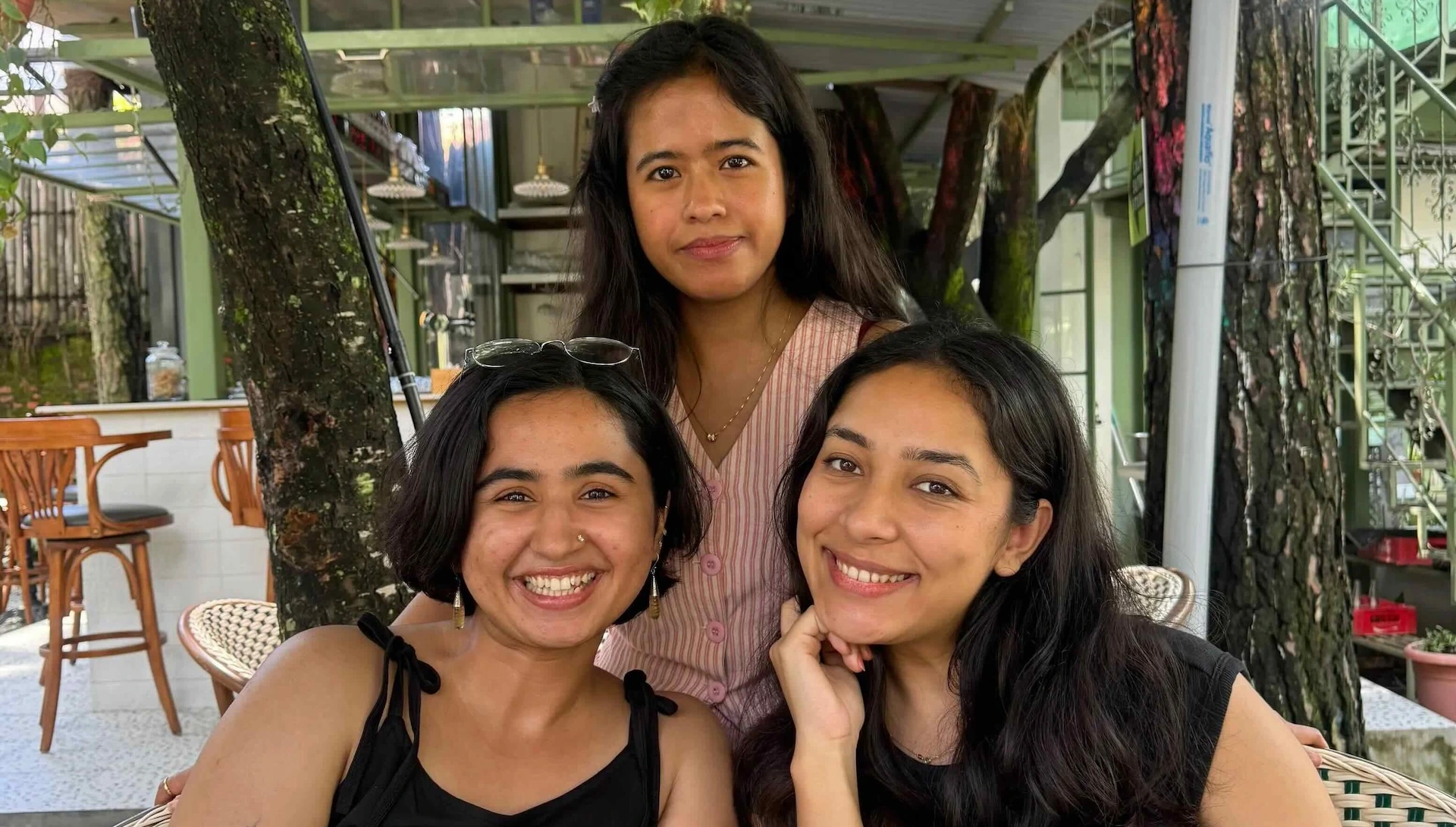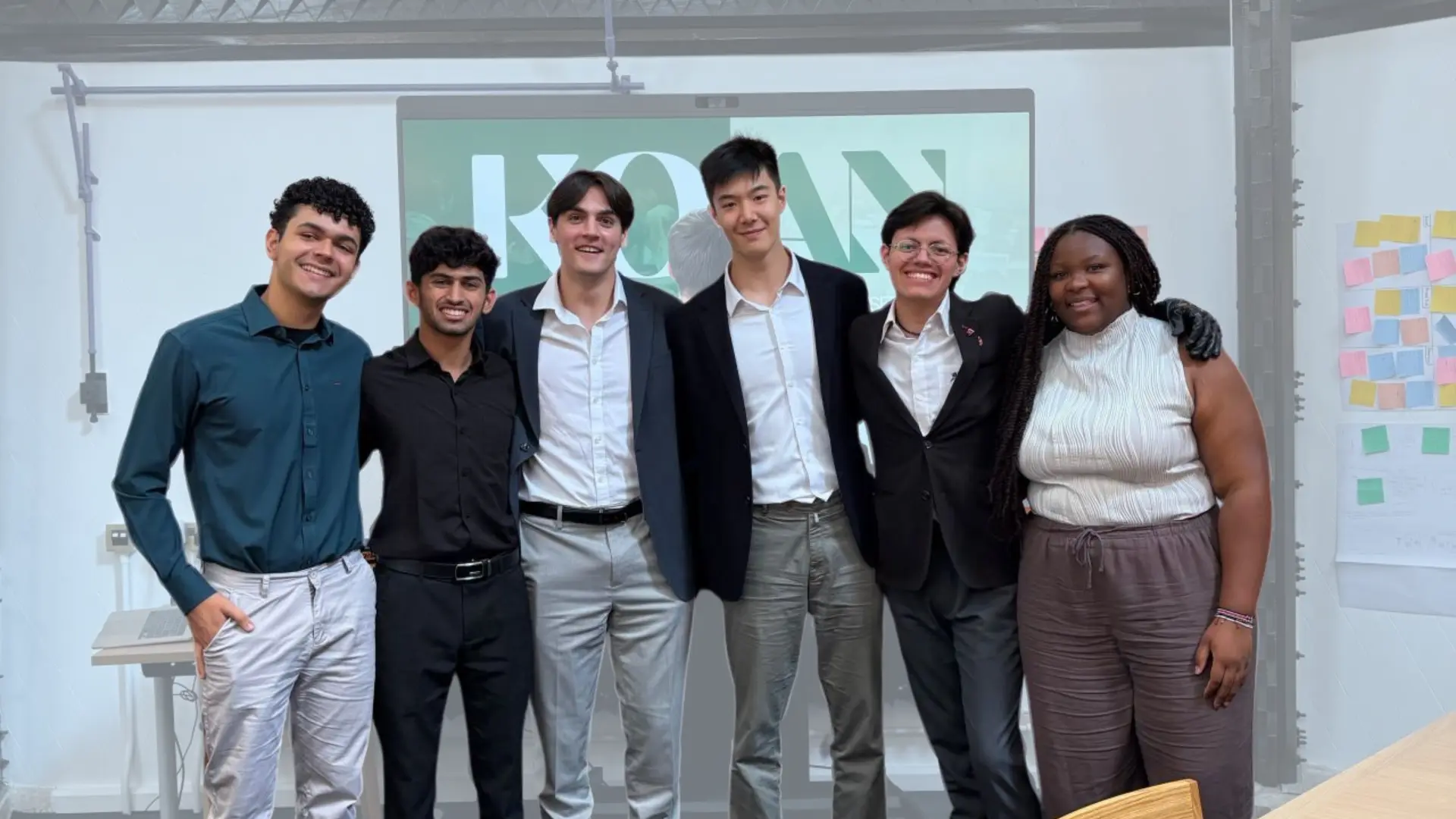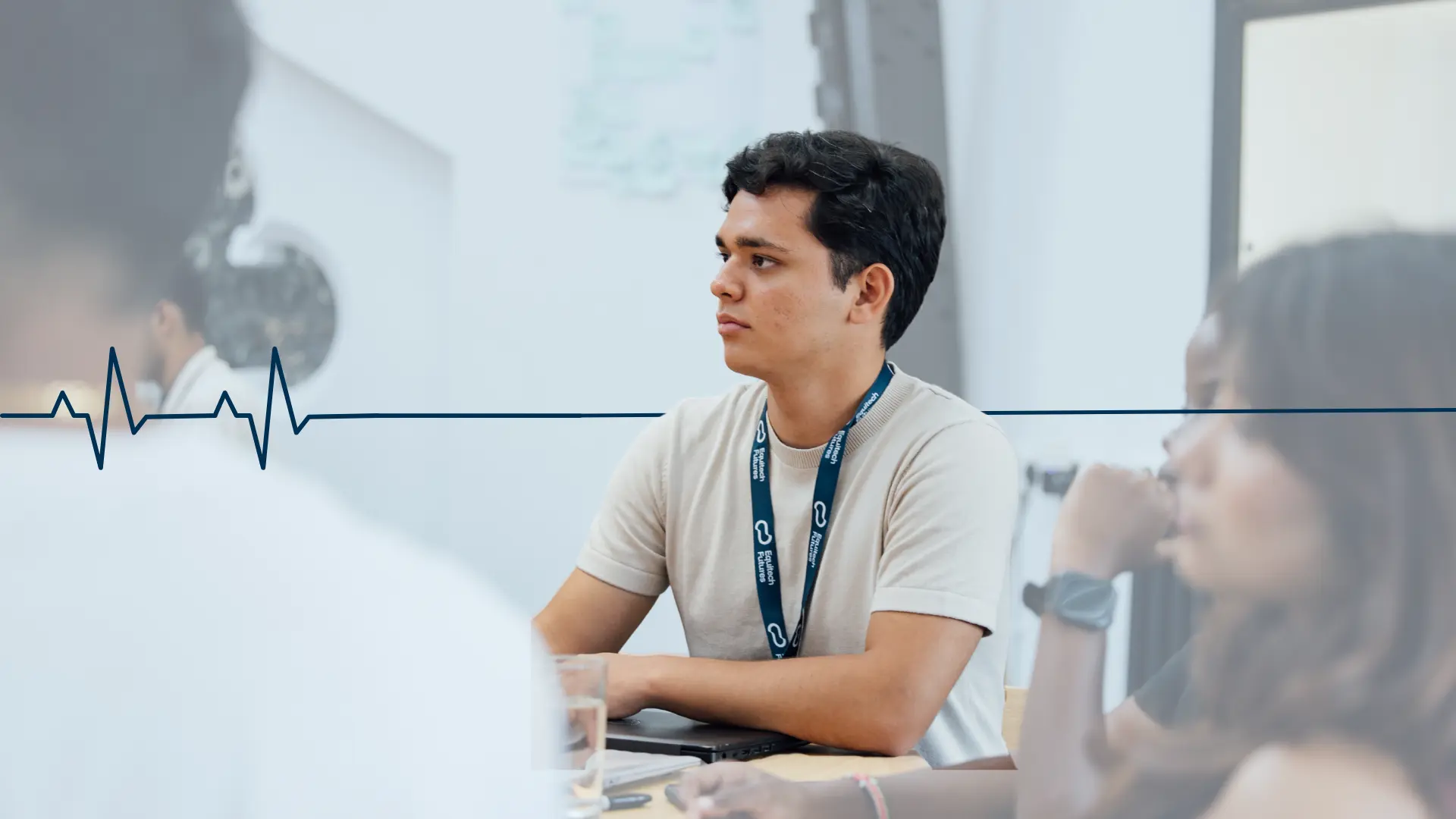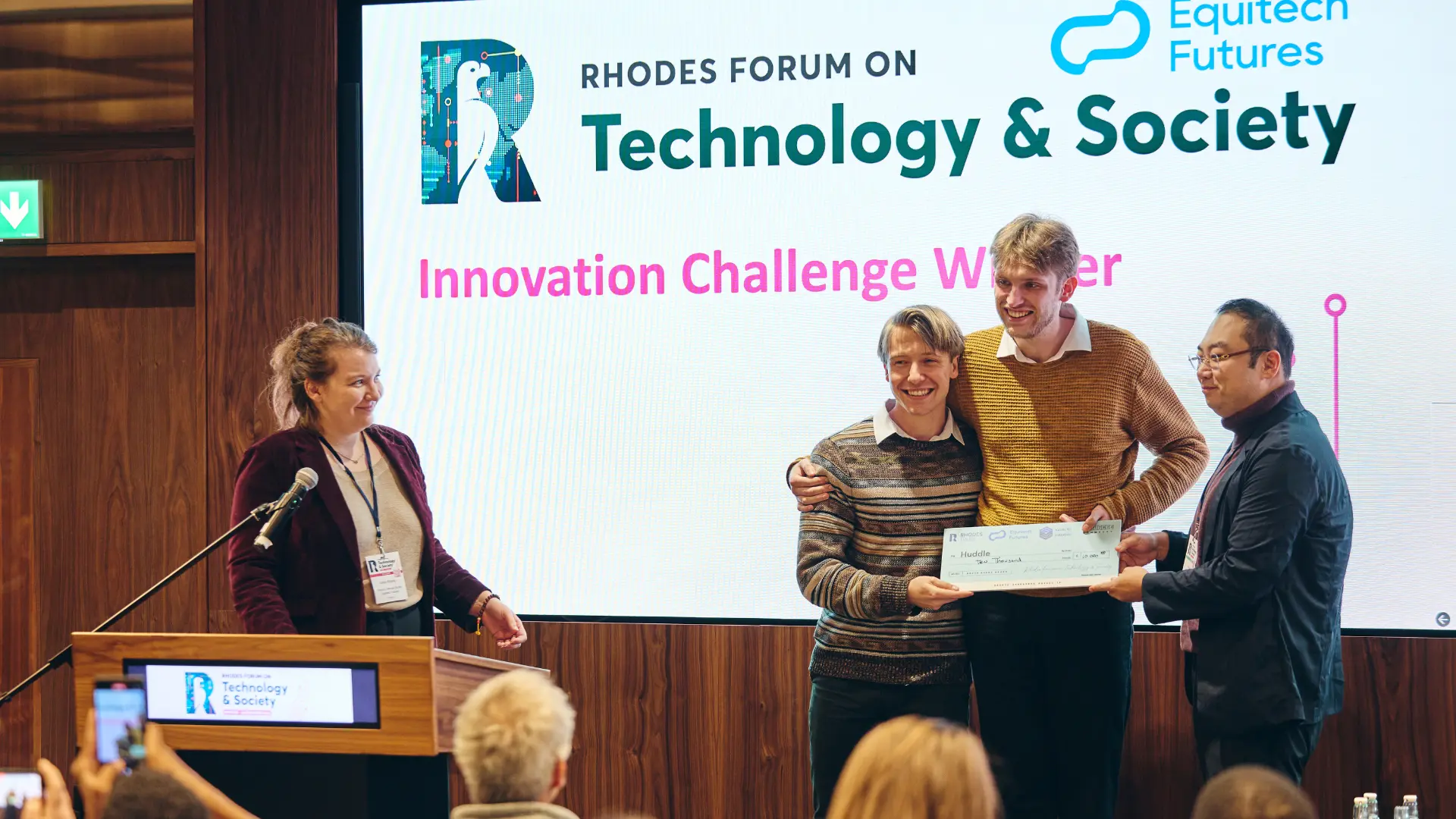.webp)
Newsroom
Togolese alumnus Apollinaire Abi receives the prestigious Kabir Banerjee Pre-doctoral Fellowship
Oct 27, 2023
5 min read
Apollinaire Abi was seated on a swirling chair in his apartment in Lome, Togo, when I met him through the small square box on our screen. “How do you feel?” I asked him, in reference to his receipt of the Kabir Banerjee Predoctoral Fellowship to study at the University of Chicago. “Life starts now,” he responded with the widest smile. A student of mathematics and computer science, Apollinaire developed an interest in development economics during the last leg of his undergraduate degree at Ashoka University, India, and earned a minor in the subject. It was this passion for development that brought him to Equitech Futures through the Equitech Scholars Program in the summer of 2022.
“Studying AI from the perspective of ethics and development was a novel concept for me, and I think that is what piqued my interest,” Apollinaire shared. “The classes were mostly in the form of a discussion instead of long lectures, which I found very efficient because that gave everyone a chance to share their insights. The ease with which everyone’s opinions were taken into consideration and young people’s voices were heard made this a special space for me.”
When Apollinaire started the program with Equitech, he had returned to his hometown, Kara in Togo, after a gap of four years. “I was home, I was happy, and I didn’t realize the intensity of the Equitech Scholars Program. I used to face issues with power cuts and bad wifi, and I wasn’t able to keep up with the course. I had to move to the capital city of Lome because I wanted to ensure that I could get as much as I can from the program,” Apollinaire explained.
Further elaborating on his Equitech journey, he said, “Towards the end of the program, Abhilash Mishra, the founder of Equitech, had mentioned that Equitech was opening research positions for interested candidates, and I reached out to him with a proposal of my own, and this research associate position has been my biggest takeaway from Equitech.” As a research associate, Apollinaire works with the Tech-Enabled Learning Lab at the intersection of AI and financial inclusion. His research examines the use of mobile money in Togo and explores financial behaviors of citizens.
“When I returned to Togo from India, I suddenly realized the stark difference between the two countries in terms of banking and finance; India was going through a digital transformation and I remember using the UPI (United Payments Interface) system predominantly while I was there, while in Togo I only used cash. I wanted to understand the reasoning behind this,” said Apollinaire. The field work he undertook for said research was not without difficulties; he trained surveyors under him, traveled around the country, conducted door-to-door interviews, and was also met with suspicion by people. “In a poor country like ours, if you go and start asking people about their financial habits, you are bound to receive some resistance,” he noted.
Having lived in 5 countries across 2 continents, Apollinaire’s educational journey has been an interesting trajectory. He left his home at 15 to join a high school in Togo where he was one of the few students to receive a scholarship; his curriculum was demanding and was designed to make the brightest students into the best engineers of the country. However, he found this method of teaching mechanical and robotic, and he knew he didn’t want to be an engineer.
“I think what my country needs is not a back-breaking curriculum which just fetches employment, but also a logical and scientific method of understanding poverty and employment,” he shared. Thereafter, he was fully-funded for another high school program in South Africa which was a blend of academia, entrepreneurship, and leadership. Here, he was exposed to the myriad of opportunities that lay ahead of him, and was also introduced to the college which he ended up attending.
“I found out about my college through my high school, about Equitech through a friend at college, and about the Kabir Banerjee Predoctoral Fellowship through Equitech,” chimed Apollinaire when I asked him to elaborate on his career choices. “I remember waking up one fine morning to a Discord message from Abhilash where he had sent me the link to this fellowship, and I decided to apply,” he said.
“The support I have received from Equitech with regard to my career has been exponential. I can’t think of anyone who would have painstakingly taken the time and effort to listen to my ideas, critique them, debate them, and trust them. Abhilash and I spent 4 months going back and forth exchanging ideas before finalizing my research proposal, and that period was a great exercise of intellectual stimulation for me,” Apollinaire said. His research stemmed from his curiosity about how policymakers think. During his time in India, he was fascinated by the Delhi Metro system and its utility for the masses. He wondered, “I used to look at the map of the metro and think about questions like ‘how did the government know what the public needed’, ‘how did they decide the routes so efficiently’, ‘how did they create this infrastructure which is both affordable and groundbreaking?’”
Ahead of his predoctoral journey, Apollinaire wants to spend as much time home as he can before moving to a different country. “I am excited for what lies ahead of me! Working with the brightest minds in my field will be both challenging and fulfilling,” he shared. “One thing I would like everyone at Equitech to know is that this is a place where you will always be heard. Take your ideas, and go to the faculty. Let them know of your drive to make a difference; they will always give you a chance. Where I come from, we look at academics as entities who exist in a universe separate from ours. But at Equitech, everyone has a space to speak with the faculty on a personal level, and they treat us like their equals in this intellectual pursuit.”
More articles
.webp)
Newsroom
No Innovator Left Behind: How Equitech Futures uses philanthropic capital to maximize impact

Newsroom



















.webp)




.webp)











.webp)















.webp)

.webp)


.webp)


.webp)






.webp)



